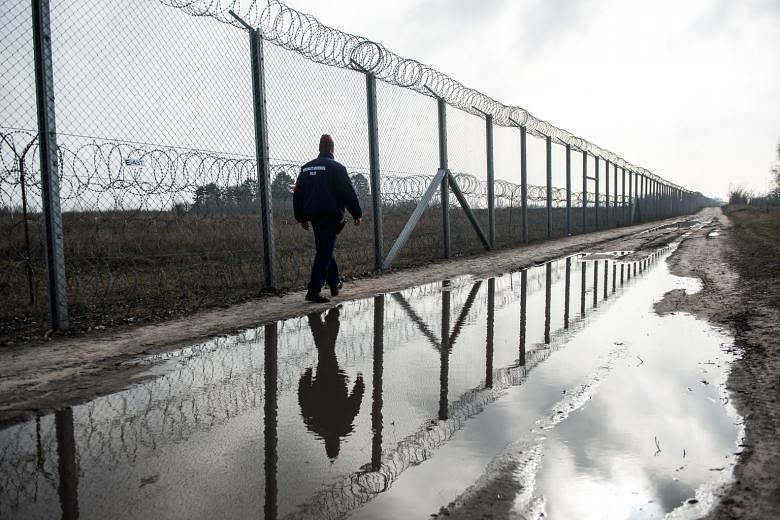BRUSSELS • The European Union hopes Turkey will prevent as many migrants from reaching Greece as they did last year, but is readying "contingency" plans to shelter large numbers who may arrive but can no longer trek towards Germany, said an EU official handling the crisis.
EU migration commissioner Dimitris Avramopoulos said on Thursday that it was unclear how far Turkey could cut numbers once the weather improves and, with efforts under way to prevent a repeat of last summer's chaotic treks through the Balkans, the EU was working with Athens to shelter refugees in Greece. "As long as the cooperation agreement we made with Turkey doesn't start giving results, the situation will not be easy at all. The flows will continue," he said. "That is why we have already started working on contingency planning."
When more than 800,000 people, many Syrian refugees, arrived in Greece last year, most moved north through the Balkans to Germany. Berlin does not want a repeat.
The former Greek foreign minister said Athens was slow to start cooperating with the EU to manage the influx, but had made "spectacular" strides in recent weeks to identify and fingerprint new arrivals.
He said work was going well on new reception centres on the mainland and with Greek preparations to house up to 50,000 migrants while their claims to asylum are assessed.
The EU executive is also pressing other member states to respond to Athens' request for equipment to deal with a possible concentration of homeless people. Mr Avramopoulos is pressing EU states to make good on agreements to help Greece by taking in tens of thousands of people while their claims for refugee status are assessed.
With borders tightening, Brussels wants to establish order by obliging people to seek asylum in the nation they arrive in and accept temporary accommodation wherever they are sent. "Everybody wants to go to Germany; this is not possible," said Mr Avramopoulos. "The door is open for all those entitled to international protection. But it will be up to the system to tell them where to go."
He stressed that time was short to prevent new chaos this year: "The weather will improve by the end of March. So... this must be very clearly done within this short period."
As pressure to cut a deal with Turkey to stem the migrant crisis grows, the EU will hold a special summit early next month with Turkey, European Council president Donald Tusk said yesterday.
"We agreed our joint action plan with Turkey remains a priority and we must do all we can to succeed," Mr Tusk told a press conference after the first day of a two-day EU summit in Brussels. German Chancellor Angela Merkel said the summit could take place on March 5 or March 7.
She said the EU "must see quickly if measures work" under a plan agreed at another EU-Turkey summit last year in which Turkey agreed to cut migrant flows in exchange for €3 billion (S$4.7 billion) in aid.
At the Brussels summit, Italian Prime Minister Matteo Renzi also warned eastern European leaders that they may get less EU development money if they do not help with the crisis. "If you do not show solidarity, countries contributing the most to the EU budget may show less solidarity to you," said one person familiar with Mr Renzi's comments to fellow leaders at a dinner that lasted into the early hours of yesterday.
EU leaders in Brussels also unanimously opposed "unilateral actions" by member states as Austria's new daily cap of 80 on asylum claims yesterday came into force. Mr Avramopoulos warned Vienna that such plans would "be plainly incompatible" with EU law.
REUTERS, AGENCE FRANCE-PRESSE

